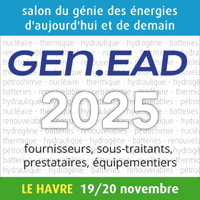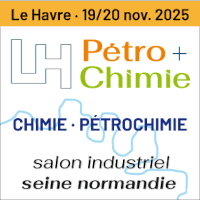juil.
11
2009 | President of the European Commission José Manuel Barroso and Energy Commissioner Andris Piebalgs welcome the signature in Ankara on Monday of the Nabucco Intergovernmental Agreement
President of the European Commission José Manuel Barroso and Energy Commissioner Andris Piebalgs welcome the signature in Ankara on Monday of the Nabucco Intergovernmental Agreement, which sets out the terms and conditions under which gas can be exported from the Caspian Sea and the Middle East to the European Union and Turkey. Potentially Nabucco can supply up to 5-10% of European gas demand, but in countries that are currently 100% reliant on one external supply route, it will provide immediate tangible security of supply benefits.
" The Nabucco project is of crucial importance for Europe's energy security and its policy of diversification of gas supplies and transport routes. The signature will show that we are determined to make this pipeline a reality as quickly as possible. I'm proud of the role that the Commission has played and extremely pleased that Turkey and the Member States of the European Union have reached an agreement based on the principles of mutual solidarity, mutual equality and interdependence" said President Barroso.
"Turkey and the European Union have found the right balance in the Nabucco intergovernmental agreement – let us hope that this is a starting point for further fruitful cooperation in our bilateral relationship, between supplier and consumer countries and to give all players the freedom to pursue their own interests, within a secure legal framework", said Commissioner Piebalgs
The agreement is between Turkey and four Member States (Bulgaria, Romania, Hungary and Austria) of the European Union. The pipeline will run between Eastern and Southern Turkey and Baumgarten in Austria, and therefore crosses the territory of these states. The agreement has taken six months of intense negotiations, building on many years of patient technical work. The Commission acted as a facilitator in the negotiations for all sides, helping to find solutions to real problems, after having been invited to take this role by the states concerned.
The Nabucco Intergovernmental Agreement is fully compatible with international law, European law and the law of Turkey. The Agreement is the first of its kind; no other pipeline project into the European Union has its development underpinned by such a comprehensive agreement.
The Intergovernmental Agreement applies EU law up until the border of the European Union and then within Turkey applies a specific regime, consistent with Turkey's domestic legal situation. Within the EU, a pipeline must be open to third party access unless it has derogation from the rules. An interconnector between Member States can obtain such derogation. A pipeline connection to a third country requires a process to ensure the compatibility of the regime that applies within the European Union with the regime applying outside.
With regard to Nabucco, the European Commission has ensured the compatibility of the regimes in Turkey and in the European Union. The consequence is that a company that wants to use the pipeline only has to deal with one interlocutor – Nabucco International Company – in order to bring gas from Eastern Turkey to the heart of the European Union (or vice versa). This is the one stop shop principle that simplifies the shipping of gas across multiple jurisdictions. The Intergovernmental Agreement ensures the regulatory coherence of this project and makes it compatible with the legal requirements that apply within the European Union's internal gas market.
The next stage is to conclude capacity contracts. These are commitments to put gas into the pipeline for a fixed period. Either buyers of gas or sellers of gas can make these commitments. These commitments are what underpin the financing of the pipeline. This stage will begin in the second half of 2009.
Nabucco is a third party access pipeline; at least 50% of its capacity will be sold on the open market so that any shipper may buy capacity in order to ship gas. The remaining 50% is given by a first option to the pipeline's owners or their affiliates; if these companies do not make use of this option, the capacity is offered on the open market.
There is strong interest from companies in Azerbaijan and Iraq to make commitments immediately. Further gas can come from Central Asia and the Caspian region. There is no shortage of potential gas sources available to the pipeline as the Caspian/Middle East region contains the largest gas reserves in the world.
In the medium term, the European Union and Turkey will jointly look at how to construct a Caspian Development Corporation to provide an assurance to Turkmenistan and other potential suppliers that European Union and Turkish companies are able to make commitments to purchase and pay for gas.
Source : Communiqué Commission Européenne
Voir la fiche de l'entreprise Commission Européenne
| |
|
|






  
|